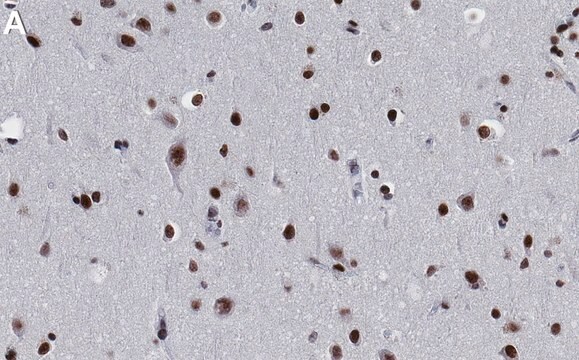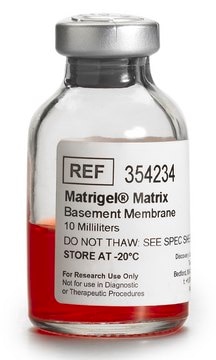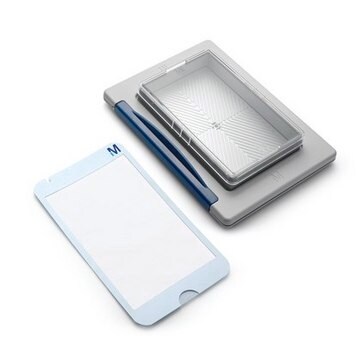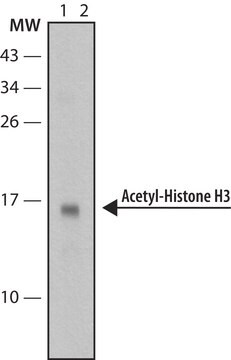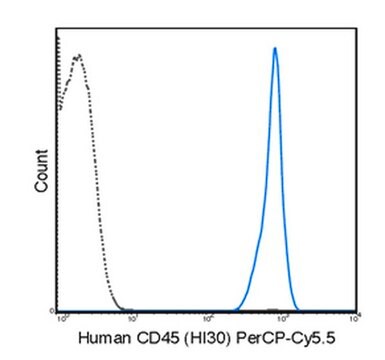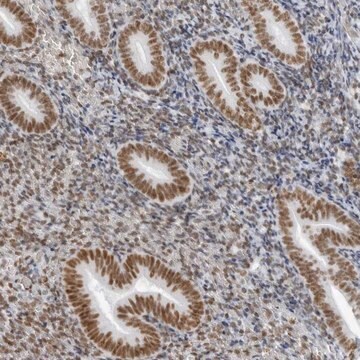ZRB1703
Anti-p-DNA-PKcs-Ser2056 Antibody, clone 1K3 ZooMAb® Rabbit Monoclonal

recombinant, expressed in HEK 293 cells
Sinônimo(s):
DNA-dependent protein kinase catalytic subunit;EC:2.7.11.1;DNA-PK catalytic subunit;DNA-PKcs;DNPK1;p460
About This Item
Produtos recomendados
fonte biológica
rabbit
Nível de qualidade
recombinante
expressed in HEK 293 cells
conjugado
unconjugated
forma do anticorpo
purified antibody
tipo de produto de anticorpo
primary antibodies
clone
1K3, recombinant monoclonal
descrição
recombinant, expressed in HEK 293 cells
linha de produto
ZooMAb® learn more
forma
lyophilized
peso molecular
calculated mol wt 469.09 kDa
observed mol wt ~350 kDa
purificado por
using Protein A
reatividade de espécies
human
embalagem
antibody small pack of 25 μL
características do produto alternativo mais ecológico
Waste Prevention
Designing Safer Chemicals
Design for Energy Efficiency
Learn more about the Principles of Green Chemistry.
validação aprimorada
recombinant expression
Learn more about Antibody Enhanced Validation
sustainability
Greener Alternative Product
técnica(s)
affinity binding assay: suitable
immunocytochemistry: suitable
immunohistochemistry (formalin-fixed, paraffin-embedded sections): suitable
peptide synthesis: suitable
western blot: suitable
Isotipo
IgG
sequência de epítopo
Internal
nº de adesão de ID de proteína
nº de adesão UniProt
categoria alternativa mais ecológica
, Aligned
Condições de expedição
ambient
temperatura de armazenamento
2-8°C
modificação pós-traducional do alvo
unmodified
Informações sobre genes
human ... PKRDC(5591)
Descrição geral
Each ZooMAb® antibody is manufactured using our proprietary recombinant expression system, purified to homogeneity, and precisely dispensed to produce robust and highly reproducible lot-to-lot consistency. Only top-performing clones are released for use by researchers. Each antibody is validated for high specificity and affinity across multiple applications, including its most commonly used application. ZooMAb® antibodies are reliably available and ready to ship when you need them.
Especificidade
Imunogênio
Aplicação
Evaluated by Immunohistochemistry (Paraffin) in human colon tissue sections.
Immunohistochemistry (Paraffin) Analysis: A 1:100 dilution of this antibody detected phospho-DNA-PKcs-Ser2056 in human colon tissue sections.
Tested applications
Peptide Inhibition Assay: Target band detection in lysates from Jurkat cells treated with 1 mM Camptothecin (3 h) was prevented by preblocking of a representative lot with the immunogen phosphopeptide, but not the corresponding non-phosphopeptide.
Western Blotting Analysis: A 1:10,000 dilution from a representative lot detected phospho-DNA-PKcs-Ser2056 in Jurkat cells treated with Campthothecin ( 1 mM; 3 h).
Affinity Binding Assay: A representative lot of this antibody bound phospho-DNA PKcs-Ser2056 with a KD of 9.3 x 10-7 in an affinity binding assay.
Immunocytochemistry Analysis: A 1:100 dilution from a representative lot detected phospho-DNA-PKcs-Ser2056 in Jurkat cells treated with Camptothecin.
Note: Actual optimal working dilutions must be determined by end user as specimens, and experimental conditions may vary with the end user
Descrição-alvo
forma física
Reconstituição
Armazenamento e estabilidade
Informações legais
Exoneração de responsabilidade
Não está encontrando o produto certo?
Experimente o nosso Ferramenta de seleção de produtos.
Código de classe de armazenamento
13 - Non Combustible Solids
Classe de risco de água (WGK)
WGK 1
Ponto de fulgor (°F)
Not applicable
Ponto de fulgor (°C)
Not applicable
Certificados de análise (COA)
Busque Certificados de análise (COA) digitando o Número do Lote do produto. Os números de lote e remessa podem ser encontrados no rótulo de um produto após a palavra “Lot” ou “Batch”.
Já possui este produto?
Encontre a documentação dos produtos que você adquiriu recentemente na biblioteca de documentos.
Nossa equipe de cientistas tem experiência em todas as áreas de pesquisa, incluindo Life Sciences, ciência de materiais, síntese química, cromatografia, química analítica e muitas outras.
Entre em contato com a assistência técnica

